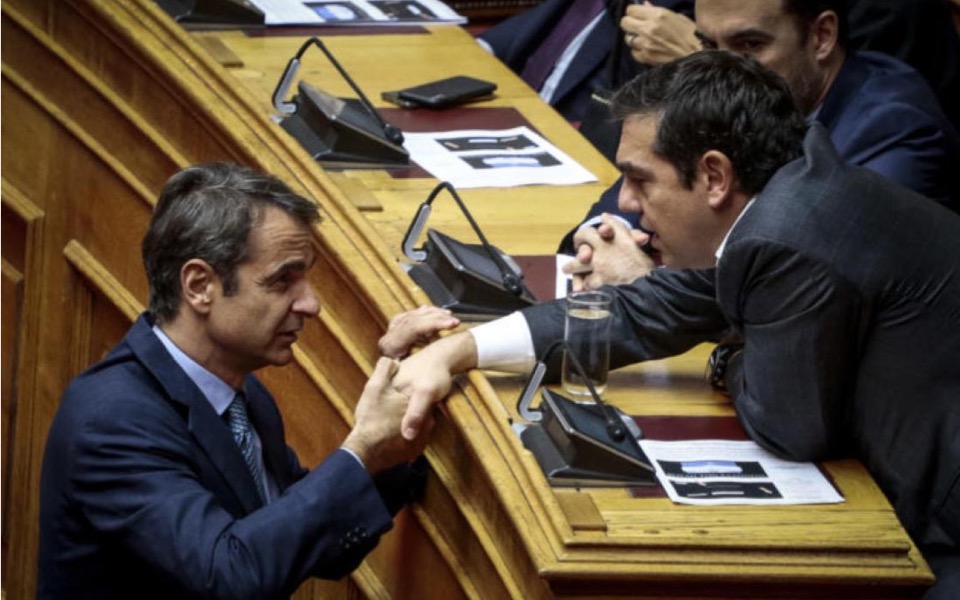Alexis and Kyriakos: Taking rivalry too far

It is unfortunate that Greeks have such a bad impression of the relationship between the two main protagonists of the country’s political scene, Prime Minister Alexis Tsipras and New Democracy opposition chief Kyriakos Mitsotakis. The people are accustomed to hearing them insult each other, attacking one another with exaggerated force and occasionally even dragging their families into the fray. As for cooperation on specific issues or consensus on the big national matters, not a word.
This is why it was so surprising to see Tsipras and Mitsotakis conversing like regular people a few days ago. Were it not for the present cynical Greek political reality, it would be regarded as a normal exchange between two rivals.
This bizarre incident, which for a moment also sparked a frenzy of conjecture regarding its purpose, took place when the opposition chief entered Parliament for the blessing of the new legislative session. Mitsotakis walked over to the government bench and spoke with the prime minister.
Several lawmakers in the House were visibly surprised. Some tried to figure out what was the “momentous” political issue that caused this unusual exchange. Were they talking about the pension cuts? The referendum in FYROM concerning the name deal?
Unfortunately, the reason for this very ordinary exchange was that Mitsotakis wanted to express his condolences to Tsipras for the death of his brother-in-law. The 58-year-old’s funeral a few days earlier had prompted the prime minister’s hasty departure from New York, right after his speech to the United Nations General Assembly.
The grief of the one and the respect of the other created this simple moment of humanity. It was similar to the moment when, at the funeral service held for Constantinos Mitsotakis, the prime minister and the opposition chief briefly spoke to each other in the church – perhaps not as friends but certainly as regular fellow human beings.
I won’t go into the facile accusations that make up their arsenals of mutual attack – interchangeably calling the other a liar or an implementer of the wishes of foreign powers, from the Americans to the Germans – but the distance between the two is really quite shocking nevertheless.
Tsipras and Mitsotakis lead parties that have very different priorities and support different policies. One is looking to take over the other’s office. Victory for one inevitably spells defeat for the other. But they are political rivals, not enemies. Is it so hard for them to project a less confrontational image? It wouldn’t be a bad thing for them or for their voters, and certainly not for the country.





